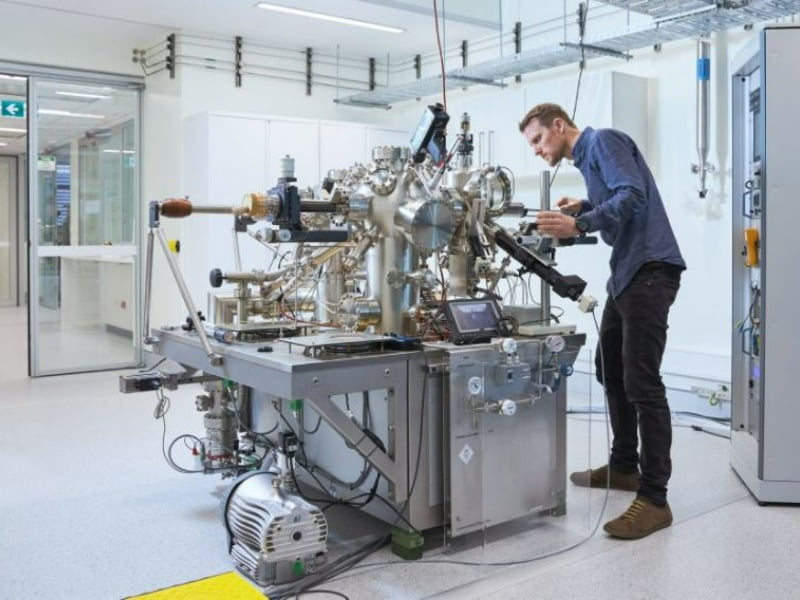The peak science group has urged the federal government to reconsider its plan to tie most collaborative research funding to manufacturing priorities, warning the change could make some Centres of Excellence ineligible for funding from the the prestigious program.
Earlier this month, the acting Education minister instructed the Australian Research Council (ARC) to direct 40 per cent of its university research funding budget into its collaborative applied research Linkage Program, and for 70 per cent of this to go to projects falling within one of six National Manufacturing Priorities (NMP) identified by the government last year.
The change, alongside increased input from industry and research end users into grant assessments, are a way to align the independent body with the government’s pandemic recovery and research commercialisation agenda.

Several current research Centres of Excellence would struggle to meet the new criteria, leaving them to compete for the remaining 30 per cent of funding from the Linkage Program, which also has to cover applied research projects, equipment and facilities, among several schemes.
In response to the reforms, Science and Technology Australia (STA), which represents around 90,000 scientists and technologists in Australia, cautioned against tying applied research funding too “tightly” to the manufacturing priorities because it could detract from applied research projects and the Centres of Excellence outside the priorities.
“Instead, we would suggest a sensible rethink of the proposed requirement for a minimum 70 per cent of the Linkage grants budget to be expressly tied to the manufacturing priorities,” STA chief executive Misha Schubert said.
“At the moment, the ARC Linkage Program funds the ARC Centres of Excellence – a key part of Australia’s foundational research capability. Not all of the Centres of Excellence sit neatly under the National Manufacturing Priorities.
“The funding levels for new seven-year Centre of Excellence grants vary from year to year. In some years, a strict application of the proposed new arrangement that 70 per cent of Linkage funding goes only to projects aligned to the NMP, could present a grave risk that a crucial Centre of Excellence may be deemed ineligible for funding.”
The latest funding round for Centres of Excellence in 2020 saw $308.8 million allocated to nine ARC Centres of Excellence, with each receiving up to $5 million a year for up to seven years. Applications for the next round, due to commence is 2023, are now open.
Some of the existing Centres appear to fit neatly into the Coalition’s six National Manufacturing Priorities, which are resource technology and critical minerals processing, space, medical products, food and beverage, Defence, and recycling and clean energy.
But others, which focus on areas like children and family studies, for example, would be less likely to be eligible for the biggest slice of funding.
Ms Schubert also flagged potential problems with the new ARC governance measures being implemented by the government, which will see more representation from industry in grant decisions through a widening of the College of Experts and a new advisory group for ARC strategy.
“The intentions to widen the membership of the advisory committee and include additional reviewers in the College of Experts have merit, but it will be crucial that its members have a strong and nuanced understanding of the research landscape as a whole, and how it works together to be greater than the sum of its parts – including the key role of discovery research,” she said.
“Great care would need to be taken in widening the membership of the College of Experts to include industry figures, to manage conflicts of interest and commercially sensitive information being seen by competitor companies.”
The latest reforms were met with some relief when the federal government committed to continue funding discovery research. But the tweaks to how discovery research proposal are assessed, including a higher bar for the National Interest Test with more weighting to “potential gains and practical outcomes” could limit important work, Ms Schubert said.
“Hungarian-born scientist Katalin Karikó’s pioneering discovery research on messenger RNA from 1990 onwards led the world to have this breakthrough technology when the COVID-19 pandemic hit in 2020 – three decades later – in a life-saving moment. Could she have explained the potential application of mRNA in the earliest years of the research? It is deeply unlikely.
“Scope for curiosity-driven, fundamental research is imperative. It is not possible to predict the huge benefits that may ultimately arise from any given research project. Too strong an emphasis on quick wins risks dampening researchers’ curiosity and ingenuity and the often serendipitous breakthroughs in fundamental research.”
STA has been advocating for a new translational research fund to avoid impacting existing funding in the new push to commercialise university work.
Do you know more? Contact James Riley via Email.

